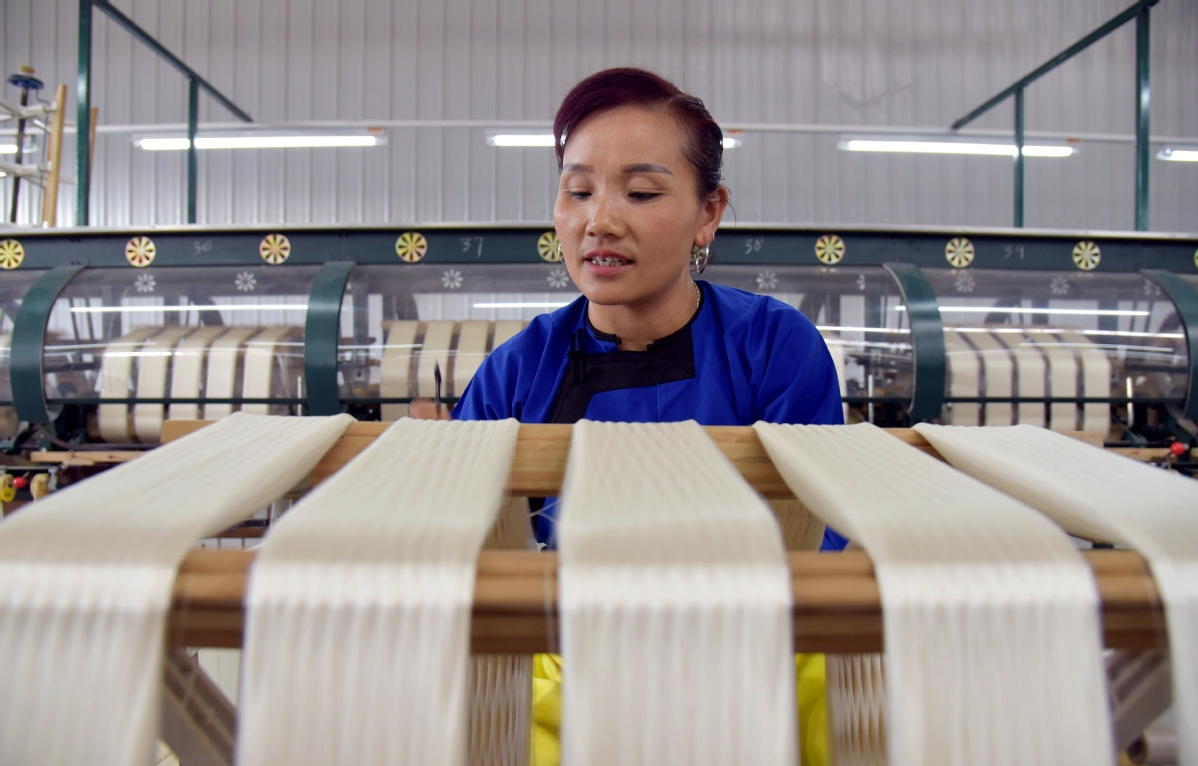A silky smooth move


From east to west
Wang's business originally started in Jiangxi province, however, in recent years he moved his business west to Guizhou and Sichuan province.
"The environment and the climate here in Guizhou are perfect for raising silkworms," Wang said.
Suitable temperatures for silkworms range from 22 C to 30 C. They don't thrive in cold and dry weather. High temperatures and high humidity also threaten their survival.
Jichang is about 1,000 meters above sea level and is cool in summer and moderately cold in winter.
With a good natural environment, the area is perfect for the development of sericulture, or silk production. "The unique climate and good environment have created wonderful conditions for silkworms, and the silk they produce is of high quality," local official Wang Chun said.
In Linpan, swathes of mulberry trees sway in the wind. The mulberry leaves are the "granary" of countless silkworms in the village.
"The township has more than 1,350 hectares of mulberry trees, as well as silkworm warehouses of about 100,000 square meters in area," Wang Chun said.
"The silkworm cocoons produced each year weigh 4,500 metric tons and the annual production value exceeds 90 million yuan."


















